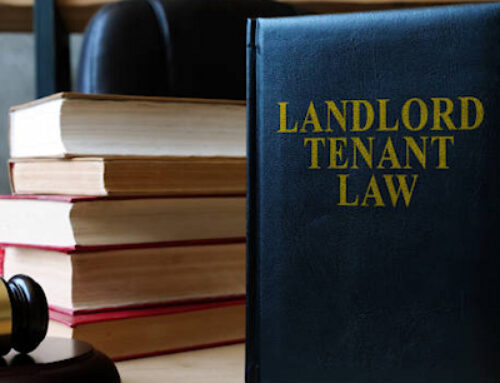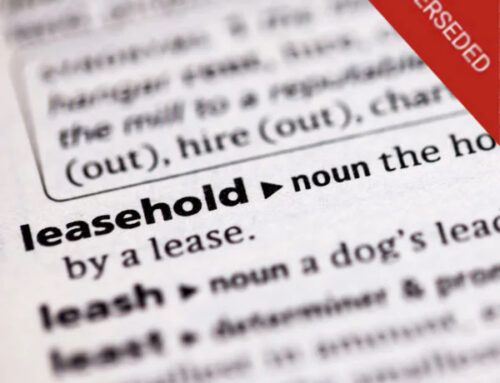How to serve a Section 8 notice on a tenant
 In my previous article ‘How a Lettings agency manages rent arrears’ I explained the difference between issuing tenants with a Section 8 or a Section 21 notice to gain possession of a property. Obviously, no-one wants the cost and inconvenience of court action, but sometimes, there are no alternatives. So what does happen if a Lettings Agency has to serve a section 8 notice under the Housing Act of 1988?
In my previous article ‘How a Lettings agency manages rent arrears’ I explained the difference between issuing tenants with a Section 8 or a Section 21 notice to gain possession of a property. Obviously, no-one wants the cost and inconvenience of court action, but sometimes, there are no alternatives. So what does happen if a Lettings Agency has to serve a section 8 notice under the Housing Act of 1988?
These notices are usually served due to rent arrears. However, any breach of the tenancy agreement, such as damage to the property or noise complaints, can be used as grounds for serving a Section 8 notice. In fact, the Housing Act of 1988 lists 17 grounds for serving a Section 8 notice. It’s a legal requirement that the landlord states their grounds for serving the notice when doing so.
Some of the grounds for serving a section 8 notice are mandatory, others are discretionary. This means if a landlord can prove a mandatory ground (such as the tenant being 8 weeks in rent arrears) the landlord is supposed to be awarded mandatory possession by the court. In practice, tenants often counter claim for disrepair to the property or give another reason why they should be allowed to be in arrears. This results in even mandatory grounds being hard to enforce. It’s hazardous to use discretionary grounds on a Section 8 notice as a reason for regaining possession of a property because the burden of proof rest with the landlord. And, many judges expect considerable evidence before evicting a tenant from their home.
To start proceedings, the tenant must first be informed, using the section 8 notice that the landlord wishes to seek possession. The Notice seeking possession is issued under section 8 of the Housing Act 1988 and must be served on the prescribed form – ‘section 8′. The notice can be included with a final rent reminder letter. Any errors made when issuing the section 8 notice (which is extremely common) are likely to delay the landlord gaining possession. That’s why it is always sensible to seek professional advice before issuing a section 8.
The notice can be served by post or in person. At Pace, we always hand deliver notices in person and complete the certificate of service at that point. Wherever possible, we also have a second person present when notices are being delivered, simply to act as a witness. This makes it harder for a tenant to declare they have never received the paperwork. It is also useful if we are required to prove delivery of the notice in court. Where there is more than one tenant at a property, the notice must be served on all parties. This means all names must be included on the relevant documents.
Once a notice has been issued, the landlord or Letting Agent is required to wait until the notice has expired. As a guide, this is usually 14 days from the date written on the paperwork but the rules are detailed and technical and can vary. Some tenants will leave before this date arrives.
If the tenant does not leave the property by the date stated on the Section 8 notice, the landlord or Lettings Agency must apply for a possession order from the court. This is done by obtaining the appropriate forms from the local court (forms N5 and N119) and payment of the appropriate court fee.
However, a section 8 notice does not guarantee a court will grant a possession order for the tenant to vacate. Sometimes, additional evidence is needed if the claim goes to court. This evidence, such as testimonies from neighbours or photographs of the property, can help convince the court to rule in favour of the landlord.
If a court is satisfied that a landlord is entitled to possession on the grounds stated, then a court will grant a possession order to take effect within 14 days. In some cases, the court may extend this to six weeks if it will cause the tenant to experience exceptional hardship. If the tenant still refuses to leave after a court order has been received, then the landlord or Lettings Agent can ask the county court bailiffs to evict the tenant.
At Pace, we always try to rectify situations before it comes to serving notices. Taking legal action to gain possession of a rental property is always the last resort. But it does offer landlords peace of mind knowing there is a formal route to regain control of a property if tenants do become a serious problem.
We are happy to offer half an hour of face-to-face advice to local landlords in difficult situations free of charge. Please telephone and ask to speak to Martin, Marcus or Crystal.








